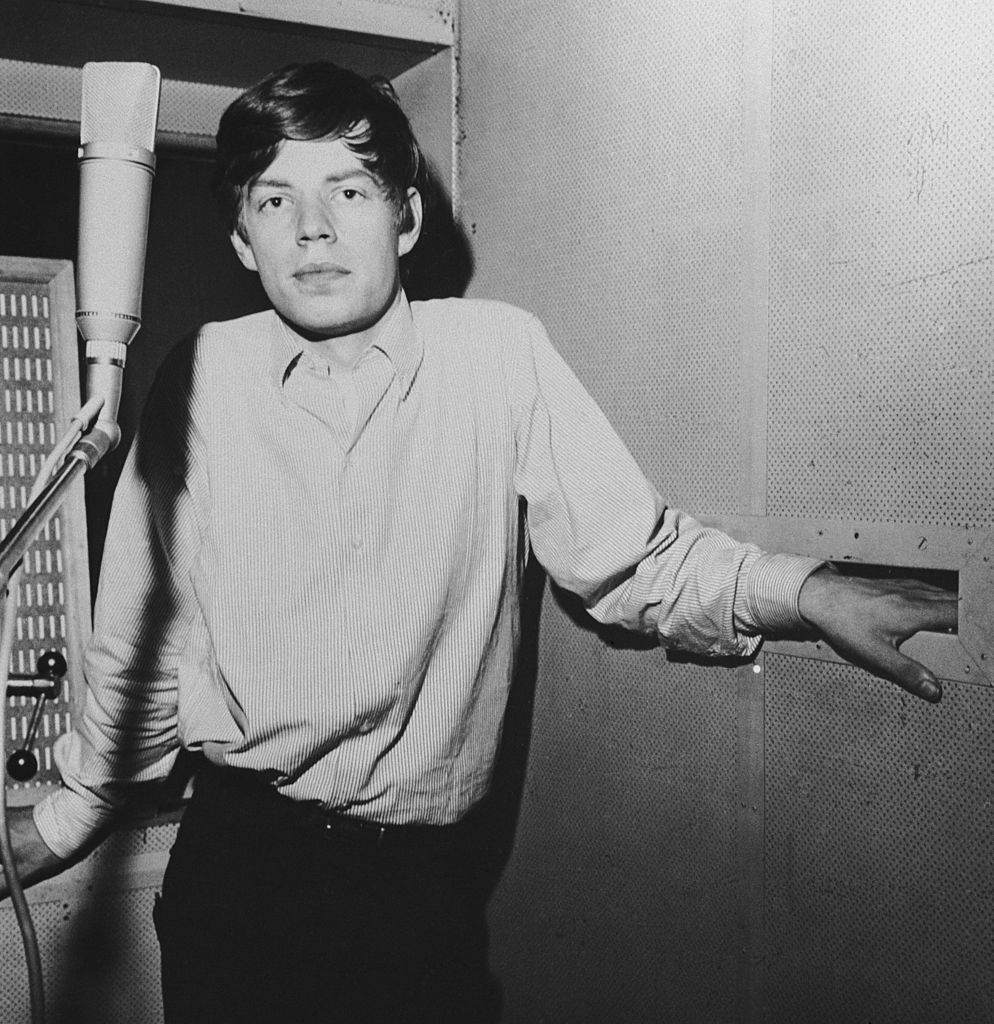Among the other jewels in the crown of Sir Mick Jagger’s songwriting career is a number he and his longtime creative partner Keith Richards knocked off in December 1963 to promote the Kellogg’s company products. Don’t laugh — it’s an infectious little tune in its way, even if the key lyrical message — “Wake up in the morning/ There’s a pop that really says/ Rice Krispies for you and you and you!”) falls some way short of the same duo’s “(I Can’t Get No) Satisfaction,” which followed barely twelve months later.
But then Jagger, who turns eighty on July 26, was always a quick study. Last year’s four-part EPIX documentary series My Life as a Rolling Stone may be numbingly banal (“They set the bar for what a rock ’n’ roll band should sound like, look like… and feel like,” we’re told, the presenter’s voice falling to a reverential hush to make the point), but the segment on Jagger himself did at least contain a choice nugget on how the impeccably middle-class lad from the leafy London suburbs shape-shifted into the androgynous sprite in the tight-fitting jumpsuit who, along with his evil-looking colleagues, caused parents to lock up their children whenever the Stones came to town.
“I used to go to the Ready Steady Go! studio,” Jagger recalls of the venerable British Friday night musical variety show. “The [Rolling Stones] weren’t even playing, but I’d go down there so I could get an idea of where the cameras were, and get to know the angles, and then I’d go home and practice my moves for the next time when we were on.”
And that’s surely the “real” Mick Jagger for you: the made entertainer whose brilliantly sustained career has been about equal parts application, talent and good timing.
Let’s forget for a moment the millions of records Jagger has sold, or the equally impressive number of women he’s had, and skip the usual chronological trawl through the pitstops of the Stones’ sixty-year career: the frenetic early concerts, with their mixture of Beatleseque teen abandon and Clockwork Orange ultraviolence, the drugs, Brian Jones’s death, Altamont, more drugs, Mick and Keith’s near-divorce in the 1980s and the great circus-like tours of more recent times. This small tribute isn’t about the multimillionaire pop plutocrat we know and love today. It’s about his beginnings.
No other major rock star is, I think, quite as obviously a product of his time and place as Jagger. He actually arrived with us not on July 26, 1944, as certain early Stones publicity handouts — apparently already exercised by their frontman’s age — insisted, but a year earlier, in the-then sedate dormitory town of Dartford, Kent, a twenty-five-mile commute from central London. His father was a soft-spoken, thirty-year-old schoolmaster and physical-education buff named Basil Fanshawe Jagger, who went by the name Joe, which he told me he thought sounded “friendlier.” Joe’s own father had also been a teacher, and Mick later conceded that he, too, had an inbred touch of the educator about him.

In 1940, Joe Jagger married a pert, twenty-eight-year-old brunette named Eva Scutts. As a young girl, Eva had emigrated with her parents and four brothers from Australia on board the SS Rotorua, a vessel immediately afterwards sunk by German submarines with the loss of most of her crew and passengers — clearly not only a horrific event in itself but also a tantalizing “what if” in terms of future pop history. The Scutts family was musical; most of them played an instrument, and they all liked to sing along to the popular big bands on their Dartford home’s radio, a vast mock-teak box that could easily have doubled as a coffin. Joe Jagger told me that he’d been “a bit overwhelmed” by the breezy and self-confident Eva, although in the event their marriage lasted until her death sixty years later. Joe added that he and his wife had deliberately given the first of their two sons the names Michael Philip because they thought the initials “MP” augured well for “some sort of government career” for the boy; indeed at one time Mick himself, remembered as a “steady” young man with a passion for modern history, talked about politics or the civil service as his preferred path in life.
The adolescent Jagger was saved from this fate only by a chance encounter that took place on the raw, autumnal morning of October 17, 1961 at Dartford’s unprepossessing railway station, an unlikely spot to associate with one of the big-bang moments of postwar youth culture. The local trains that particular Tuesday were running late. On the drab northbound platform, a lone passenger, draped in a sensible duffle coat and a purple, black and gold scarf, was waiting for the delayed 8:28 departure to London, where he was due to attend a Mercantile History lecture as part of his first-year degree course at the London School of Economics. The undergraduate in question was jumping up and down, half from cold, half with his usual nervous energy. In a career discussion earlier that week with Walter Stern, his college tutor, the eighteen-year-old Jagger had repeated his plans to become “a ministry advisor or official” of some sort. His father insisted that he thought he had it in him to be a top economist. Stern, for his part, already had doubts about the younger Jagger’s mathematical ability, but high hopes for him in advertising. “That boy always had some campaign going, you know, some scheme.”
Almost anything, they all agreed, but music.
As Jagger peered down the curve of Platform 2, that particular life choice seemed singularly improbable. A moment later it became inevitable. Looming up out of the depths of the fog was Keith Richards, lugging his guitar.
That brief but momentous encounter swiftly took things in another direction, depriving the British civil service of a likely capable mid-manager who might now be enjoying a modest suburban retirement. Given the ensuing 200 million album sales, four Grammy awards and tens of thousands of acres of attendant newspaper print, it seems only fair to say that Jagger chose wisely in forsaking a life of mundane respectability for the intoxicating whiff of sulfur embodied by the already strikingly debauched, teenaged Richards.
Just a few weeks before this rock music equivalent of the Molotov-Ribbentrop pact (if with altogether more durable, and benign, results), Jagger’s headmaster at Dartford Grammar School had written a leaving report on him which said:
Of late, M.P. Jagger has applied himself well on the whole, and has shown a greater determination than we had expected. He should be successful academically in all areas, though he is unlikely to do brilliantly in any of them.
Jagger is a lad of good general character, though he has been rather slow to mature. The pleasing quality which is now emerging is that of persistence when he makes up his mind to tackle something. His interests are extremely wide.
More than sixty years later, it would be hard to quibble with that core assessment. Happy birthday, Sir Mick.
Christopher Sandford’s biography of Mick Jagger, Primitive Cool, is available from the usual outlets.

























